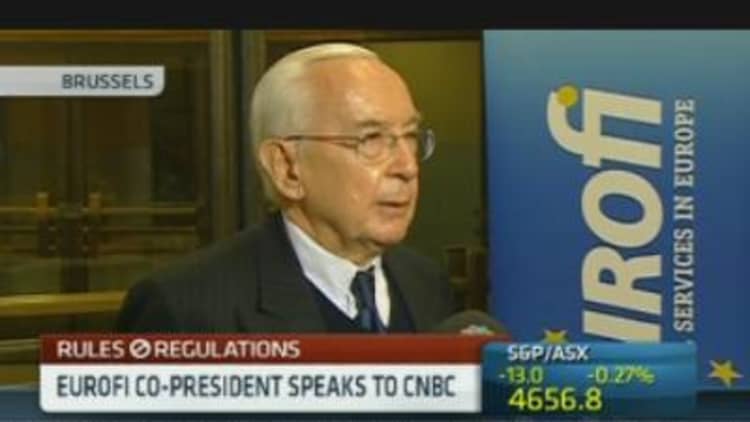New EU banking regulation must focus on institutions’ individual business models, rather than simply their size, Jacques de Larosière, co-president of think tank EUROFI told CNBC.

Global regulators agreed earlier this month on new banking rules which will force banks to more than triple the amount of top-quality capital they must hold in reserve.
Meanwhile, calls are intensifying for banks deemed "too big to fail" to hold extra capital to provide a buffer in the event of another financial crisis.
But the “too big to fail” debate, which is likely to be on the agenda at next month’s G20 meeting, requires a “diversified” approach, according to de Larosiere.
“You can’t say one size fits all,” de Larosiere said.
“I think it would be more intelligent to look into the reality of those banks.
To look at their business model, and if the business model appears too concentrated on ‘dangerous’ things, then the supervisor has to act on that,” he said.
If a business model raised serious concerns, the regulator could ask the bank to put aside “much larger capital buffers”, he explained.
The former IMF managing director and French central bank governor also said he was concerned that the new regulatory system might have “unintended consequences” in creating a shadow banking system that will not be supervised.
If “high-risk” businesses move to unregulated hedge funds for example, the new rules could “open the door of regulatory arbitrage”, de Larosiere warned.
“I am fearful that indeed, there may be unintended consequences from this new regulatory system that’s shaping up, and one of them is indeed to shift towards non-regulated hedge funds,“ he said.


